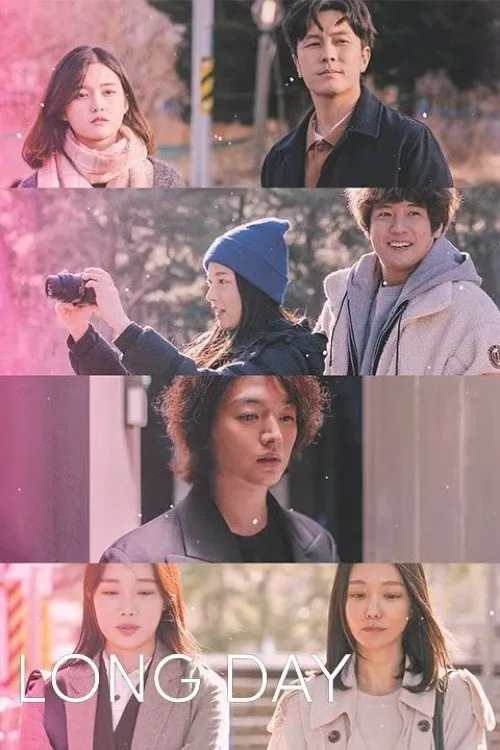Long Day

Plot
Long Day, a poignant and introspective film that navigates the complexities of relationships, art, and existence through the everyday lives of a group of creatives, unfolds over the course of a single, eventful day. The movie masterfully weaves together four vignettes, seamlessly intertwined to create a captivating and thought-provoking cinematic experience. We are introduced to our protagonist, a talented yet melancholic screenwriter, as he attends a film industry party. The event is a chance for industry professionals to socialize and network, but for our protagonist, it's a painful reminder of his feelings of inadequacy and disconnection from the world around him. His interactions at the party, though polite and courteous, are tinged with a sense of disaffection, as if he's watching his own life from a distant perspective. As the day progresses, we are introduced to a diverse cast of characters, each with their own unique struggles and aspirations. A beautiful and enigmatic woman, a budding artist, catches our protagonist's eye, but their chance encounter at a local café ends in confusion and missed opportunities. Their interactions are stilted, as if their conversation is a slow-burning fire that's struggling to find its spark. Meanwhile, a middle-aged novelist, known for his groundbreaking works of fiction, begins to explore the blurred lines between reality and fiction. His inner monologue is a musing on the nature of storytelling, love, and loss, as he recounts the events of that fateful day. His recollections are fragmented and disjointed, reflecting the fluidity of memory and the fragmented nature of human experience. The novel's themes are further explored in the film's third vignette, which follows a struggling artist who finds solace in the abstract and the unknown. Her paintings are a manifestation of her inner turmoil, a visceral expression of the emotions that lie beneath the surface. Her interactions with a charming and affable art critic are a commentary on the commodification of art, as well as the inherent value that lies within the creative process. The final vignette brings together our protagonist and the enigmatic woman from the café, as they reluctantly agree to meet once more. Their conversation, though hesitant and awkward, is a powerful exploration of longings unfulfilled and connections that could have been. The tension between them is palpable, a delicate dance of emotions that threatens to derail at any moment. As the day comes to a close, our protagonist is left to reflect on the missed opportunities and unfulfilled connections that have defined his life. The film's closing shot, a solitary figure walking alone in the rain, is a poignant reminder of the transience of life and the impermanence of human connections. Through its conversational narrative, Long Day delves into some of the most fundamental questions of human existence: the meaning of love, the power of art, and the fleeting nature of time. The film's introspective tone is a perfect reflection of the creative world it inhabits, where the boundaries between reality and fiction are constantly blurred. In the end, Long Day is a powerful exploration of the human condition, a nuanced portrayal of the complexities and fragilities that define our lives. With its thought-provoking themes and poignant performances, this film is a must-see for anyone who has ever struggled to find meaning and connection in a chaotic world.
Reviews
Recommendations



